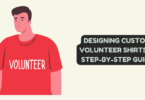
Business Trip
Corporate travelers can rely on technology to make trips more efficient and enjoyable. Therefore, technology has become part of the essentials that travelers must pack.
Experience makes what to pack more obvious, even when the destination conditions change, such as the weather. The essentials don’t change.
For example, all travelers should pack a printed copy of their itineraries and organize travel documents in an easy-to-find manner.
The following are nine essentials to never be without during a business trip.
1. Smartphone
The smartphone has become an ultimate travel essential. The tech device allows travelers to:
- View itineraries
- Confirm reservations
- Obtain directions
- Book reservations
- Contact others
Plus, downloading apps to the devices increases user productivity. Then, download podcasts, videos, or movies since the devices help users pass the time.
For another perspective, Hotel Engine offers another list of essentials that corporate travelers need here.
2. Travel Documents
Travelers must organize and keep their travel documents on their person throughout trips. Documents include:
- Government-issued identification
- Boarding passes
- Confirmation numbers
- Schedules
It’s unnecessary to memorize times and dates if you carry these documents.
3. Wallet or Purse
To easily carry smartphones and travel documents, purchase wallets or purses designed for travel.
Bags have evolved, just like suitcases. Therefore, travelers will find bags that suit their style preferences, travel needs, and budgets.
For example, the latest bags offer several zippered compartments and pockets and remain lightweight and reasonably sized. Moreover, the sizes consider that boarding passes, tickets, and passports have odd dimensions.
4. Multiple Forms of Payment
Entering 2023, the world lives in the digital era. However, credit cards and crypto have not made cash obsolete.
Therefore, it’s essential to travel with multiple forms of payment. Individuals cannot pay with credit cards when the electricity goes out; they can’t pay with crypto either.
Thus, carry enough cash to cover two days’ expenses, just in case.
5. Laptop or Tablet
Laptops and tablets complement smartphones. Smartphones are great for the on-the-go, while laptops and tablets are the better choices when you can sit down for at least an hour.
The larger electronic devices have the more substantial processing power. Therefore, you can put together presentations and business documents while waiting to board your flight, traveling, and at the hotel.
Then, remember to pack extra charging cords and wall plugs!
6. Wifi Access
Electronic devices can complete their jobs when connected to the internet. However, data plans, such as laptops, don’t exist for all of them. Therefore, travelers must travel with their wifi access.
Most hotels, airlines, and transportation methods offer some wifi access but don’t become too dependent. Invest in a data plan for your smartphone and tablet. It’s also worth investing in a separate mobile hotspot with a data plan or monthly data cards.
7. Extra Outfit
Domestic business trips average three days; international trips average five to six days. Therefore, corporate travelers must pack smartly. It’s best to avoid packing more than a carry-on.
However, it’s challenging when trips extend more than five days. In moments like these, business professionals discover what kind of problem-solving acumen they have.
Nonetheless, pack an extra outfit. Otherwise, prepare to purchase one at your destination.
8. Matching Outfit Accessories
After packing the outfits, pack the matching accessories.
The trick to fitting everything into carry-ons is mixing and matching components to create brand-new outfits.
Therefore, become adept at this game. Another trick is to pick up fashion magazines that help men and women style business outfits for corporate trips.
9. Printed Itinerary and Documents
The year 2023 will continue strengthening the digital era. Just like the digital era has not made cash obsolete, it hasn’t made paper obsolete.
Pack a printed version of your itinerary and documents. Then, store them with your boarding passes, reservation confirmation numbers, and government-issued identification.
Packing the essential means preventing and overcoming any challenges that might present themselves on trips.
You can rely on your printed documents if you lose wifi access, the power goes out, or your smartphone runs out of battery.
Conclusion
Business travelers benefit from packing the essentials for their trips first. Then, rounding them based on the conditions of their destination, trip length, and trip’s purpose. Packing the essentials helps professionals handle challenges that could pop up.






